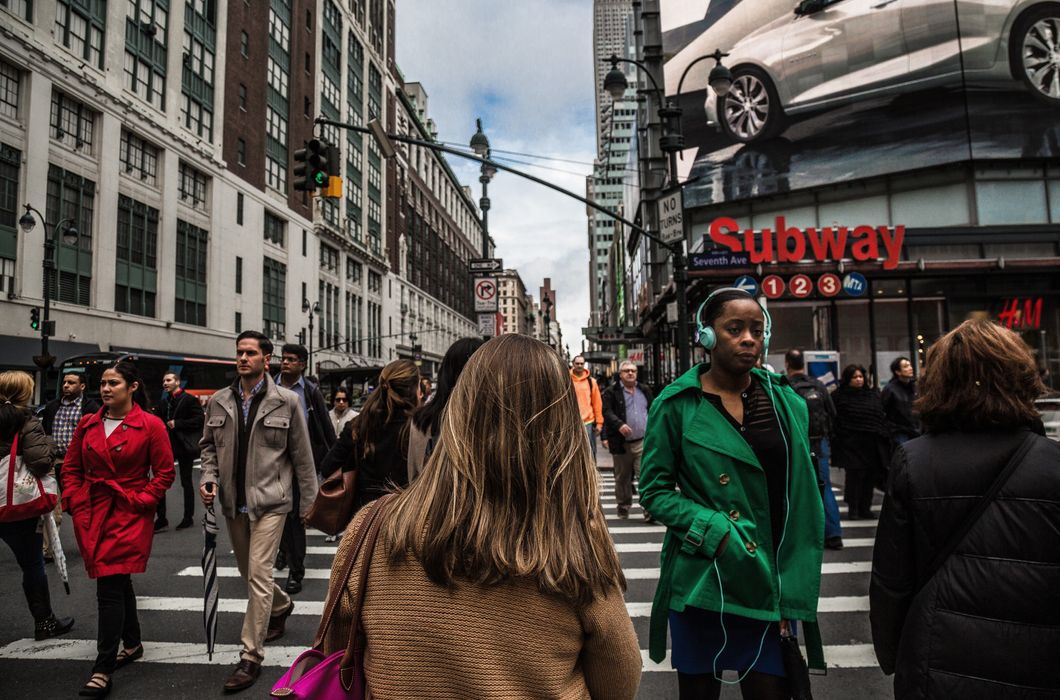During the first four years of my life, I lived in a neighborhood where I was the minority. Yes, you read that right. Me, a white American female, a minority.
My newly-wed parents fixed up an abandoned crack house destroyed by fire in the Hunting Park area of North Philadelphia. My dad previously bought the 20-year-old rowhome for ministry and community service purposes, so moving in made sense after spending time doing restoration work. Hunting Park is not the place most people choose to start a family with its track record for crime and poverty, but my parents are not most people.
When I was in elementary school, my mom got an audiobook of Jerry Spinelli's "Maniac Magee" for car rides. This book was my introduction to race relations in America. Racism was still an abstract concept for me and I remember wondering why the black people were so torn over Magee staying with them. I couldn't wrap my head around it. I knew about the African slave trade and the civil rights movement, but people were still treating each other differently over skin color? I thought that was textbook news.
The crazy thing is, I was naïve in my colorblindness for years. I didn't have "white" friends until I started grade school, but I didn't notice, and I didn't care. If you had a freeze pop or a jump rope you wanted to share, you were automatic friend material. That's how it is for children in general, bless them. It wasn't until my family moved to Chester, Pennsylvania in 2011 that I truly felt like an outsider.
Like Hunting Park, Chester has a high African-American population coupled with a reputation for gun violence, drug activity, and poverty (it is nowhere near as bad as the situation in Philadelphia, however). The shootings of innocent lives like Trayvon Martin's made me realize the streets of America are laced with poisonous prejudice and fear. This newfound reality also brought my attention to my own "whiteness". The white population of Chester is larger than Hunting Park's yet small enough for my family to stand out. I reached an age where the racial tension began to affect me and, for a while, it crushed me. My mom signed me up for various programs to get my introverted 11-year-old self out of the house. I was often one of the few white kids at the summer camps I was forced to attend, sometimes the only one. I never experienced prejudice or hatred because of my race but I felt the eyes, the eyes that read: "What is she doing here?"
I felt out of place. Making friends gave me anxiety because I constantly worried about how people viewed me. It was hard, to say the least, and I resented my mom for a long time after that. After all, why couldn't my parents have chosen a house in a white neighborhood? My life would be easier, less awkward, and I could have grown up like my other white friends instead of feeling like I didn't belong in any community.
It took years before the truth hit home: I was struggling with things true minorities in the United States have endured for decades—feeling judged, out of place, or even ashamed because of their race. I had it far too easy. Experiencing life as a minority humbled me, not just as a white person but as a human. All my young eyes saw back then were human beings. Human beings with the same organs, bones, fears, hopes, and dreams.
Most of the wounds carved into our world by white supremacy and the slave trade have long since closed, but cuts that deep will never fade completely. They leave behind ugly, crooked scars that are visible today. I see them in the African-American woman who lowers her eyes and crosses to the opposite side of the street when I approach on the sidewalk. I see them in the lonely words "WE'RE NOT FREE" graffitied on the chain-link fence I pass on the way to work. I drive from Chester into the next borough, where the stark transition from black to white is almost blinding. Segregation is over, but it still haunts our minds.
My intention is not to belittle those who were raised and live in an ethnically homogeneous community. We cannot choose where we come from, where we are born. Like it or not, it becomes a major part of our human identity, so we might as well find a way to take pride in the place and the people that raised us. I suppose my goal is for us to consider why we choose to live in the places we settle down in, raise children and retire. I believe, in many cases, there are more factors involved in our choice of housing than finances and family. A home should not be a place to retreat from the world. It should be the place where we find a strong community that supports and lifts its members up. A place where everyone, regardless of race or identity, knows they are a human being.

















